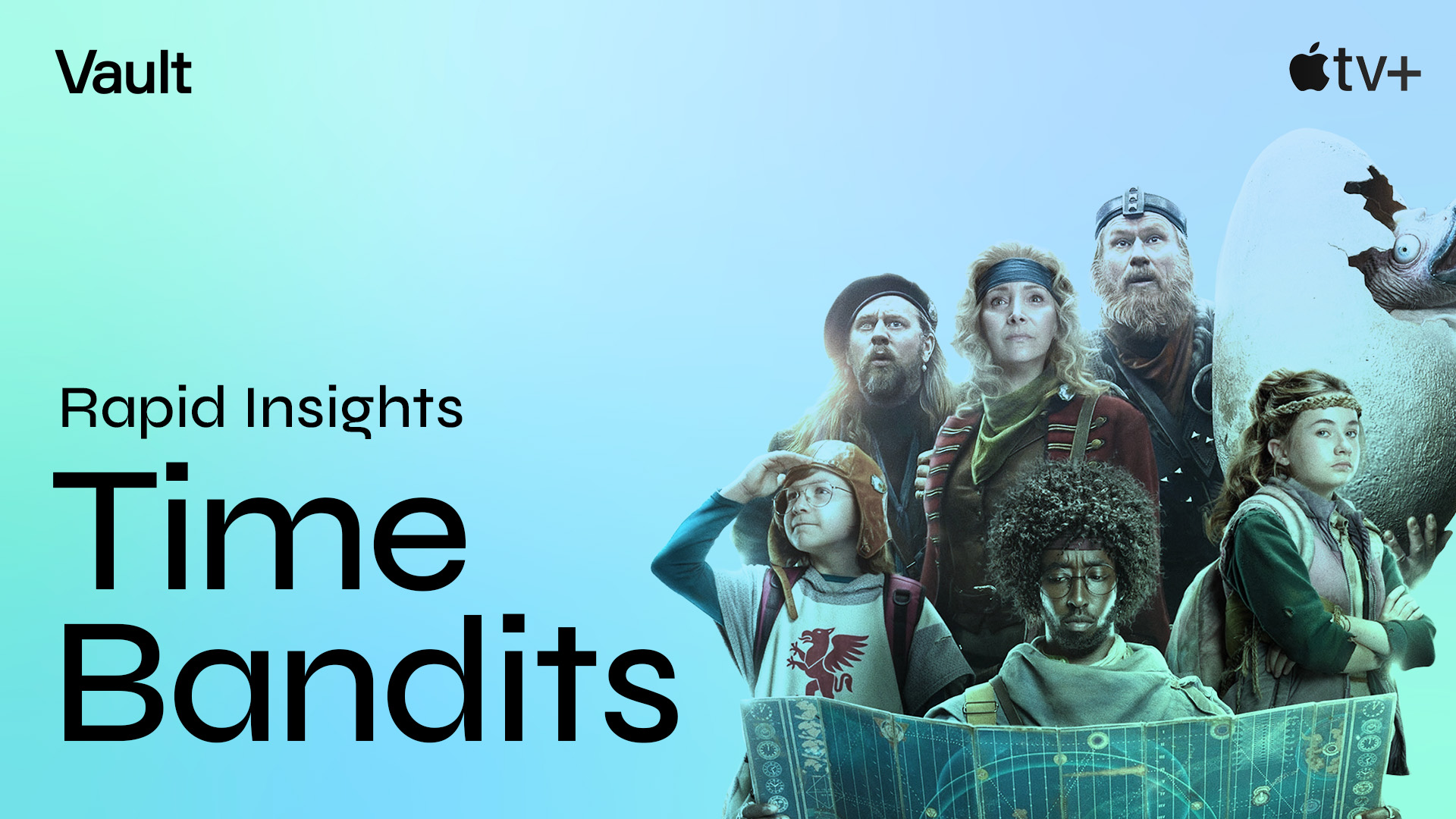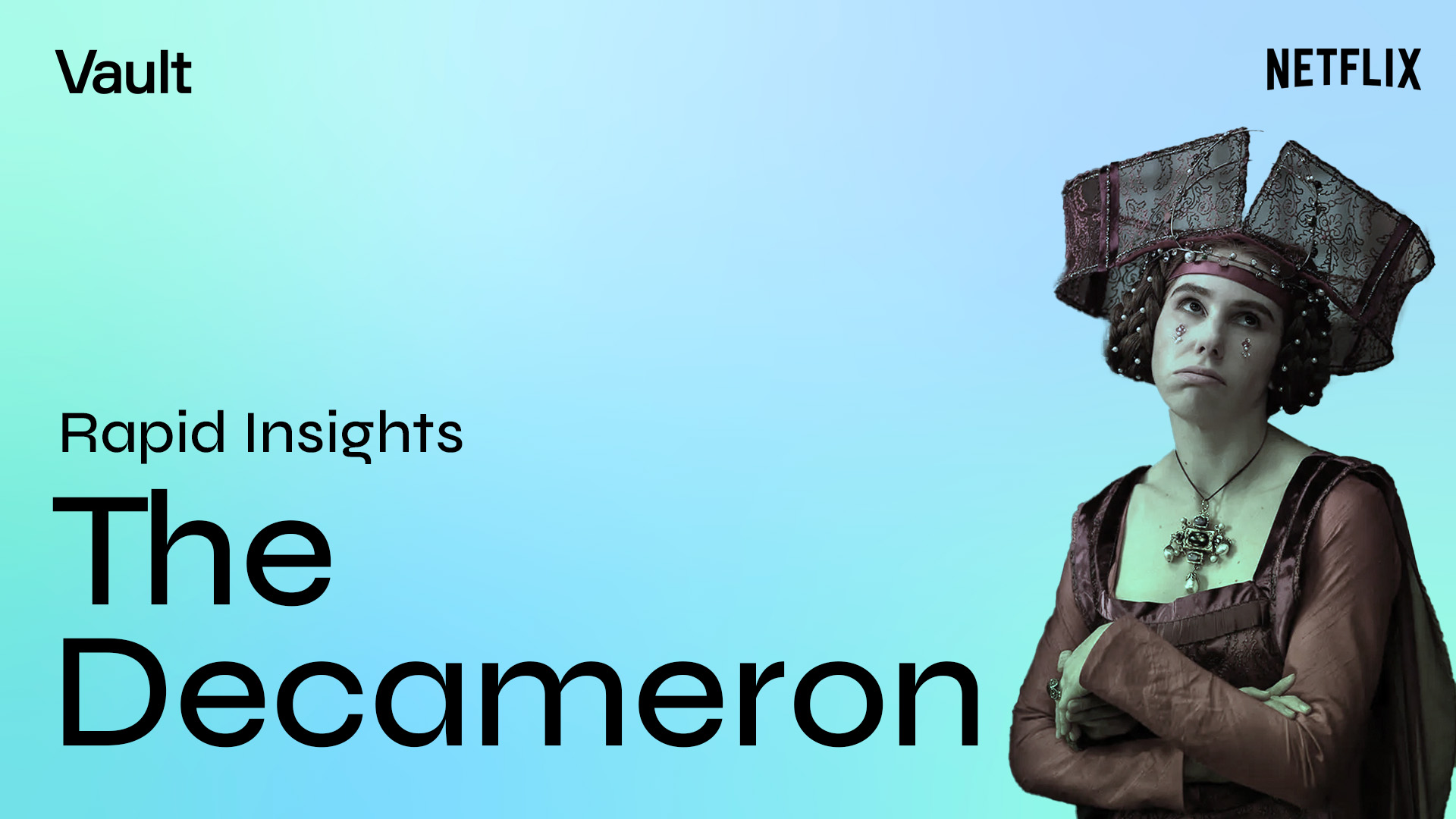A quirky new dark comedy that premiered recently on Apple TV+ has already become the surprise hit of the summer thanks to its fun, humorous approach to the crime genre. From the creator of Shrinking and Scrubs, the series stars Vince Vaughn as a disgraced homicide detective-turned-restaurant health inspector who embarks on his own investigation after a tourist finds a severed arm in the Florida Keys.
Here’s what you need to know about Bad Monkey:
Vault uses index scores to describe the impact a given story/theme/element will have on specific KPIs:
≤79 Disappointing 80-89 Challenging 90-109 Average 110-119 Promising 120+ Outstanding
Is this series appealing to the typical crime drama audience?
No. Crime fans tend to be women, especially those aged 30+, as evidenced by the viewership for serious-minded whodunnits as varied as The Lincoln Lawyer, The Killing, Bosch, Mare of Easttown, Luther, and Under the Banner of Heaven (all 55-67% women on SVOD). In contrast, Bad Monkey, while also leaning 30+ (77%), brings in more men (54%), a viewing profile much more in line with quirkier series like Poker Face, Based on a True Story, and Florida Man that amplified the comedy and action alongside the crime-solving process.
Why are viewers tuning in to Bad Monkey?
For the suspense and stakes. Vaughn’s wisecracking former detective Andrew Yancy continuously puts his own Life in Danger (140) as he haphazardly investigates the haze of secrets swirling around the severed arm. Confrontations (114) with bad guys lead to explicit threats (Under Threat, 120) as the vortex of Conspiracy and Cover-Ups (122) grows; all are big ratings draws as audiences want to see Yancy wriggle out from each new scrape.
What’s making this show so compulsively watchable?
Its sense of fun. Bad Monkey’s enticing combination of off-kilter Action & Violence (155), dark, Twisted Humor (132), and scenic sun-soaked vistas from Miami to the Bahamas (Road Trip Adventure, 121) create a memorable viewing experience that’s a perfect complement to the dog days of summer. It also helps that the show is based on a popular satirical beach read of the same name (Based on a Book, 133).
What will help push Bad Monkey to a second season?
Its Murder Mystery (114). As with many crime-based series, the idea of Solving A Murder (113), especially within the milieu of law enforcement (Criminal Investigation, 126), offers a fruitful and compelling story engine for potential future seasons. More straightforward procedurals like Law & Order, True Detective, Bosch, and The Lincoln Lawyer–as well as the more satirical Poker Face and Based on a True Story–depend on similar drivers for their own longevity.
How is the show’s online buzz?
Great. The series rocketed to the top of our social buzz meter (at 160) with its first episode drop on August 14 and has remained there ever since. So far, Bad Monkey’s trajectory looks very similar to Poker Face, which saw similarly sustained chatter during its first season run.
Redefine your understanding of TV subgenres
Introducing Genre DNA™ – TV subgenres redefined by groundbreaking AI analysis to reveal the true drivers of viewership.
See the insights that others can’t
Genre DNA™ goes beyond traditional TV genre classifications by analyzing over 1,000 scripted and unscripted series on both linear and SVOD platforms from the last 5 years.
Each Vault Genre DNA™ report offers a precise analysis of your chosen TV subgenre, uncovering its unique drivers of viewership.
*Publicly released trailers for series are evaluated using Vault’s algorithms – utilizing our proprietary 120K+ story element database alongside viewership performance and other datasets – to identify unique combinations of stories, themes, characters, and genre elements that will drive success.




